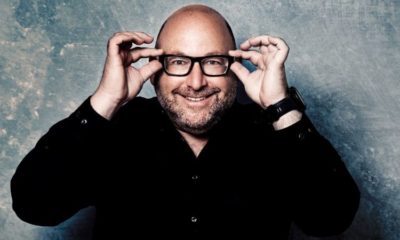
Voices

Pandemic’s unintended consequences
There aren’t many positive things to be said about living through a pandemic. The loss, the fear, anxiety, and financial impact cannot be understated, nor the impact on our children who have lost years of opportunity. But that doesn’t mean that there aren’t unintended consequences that can be good or bad.
A well-known and catastrophic example occurred in China in the 1950s. In 1958, Mao Zedong decreed that Chinese citizens should destroy the humble sparrow because the birds were eating much-needed grain in a country where hunger was a constant companion.
Dutifully, people took up the challenge, shooting the birds, breaking up nests, smashing eggs, and beating drums to scare the animals and prevent them from landing to rest. After two years, hundreds of millions of birds were dead as the sparrow approached extinction across China.
But smashing the sparrow resulted in one of the most devastating famines in recent history, killing between 15 and 40 million Chinese citizens (the exact number remains subject to ferocious debate).
Why? Because it turned out that sparrows didn’t just eat grain. They also ate insects, including locusts with a more voracious appetite for crops. With its major predator effectively side-lined, the locust roamed rampant across China.
This is a colourful way of suggesting that we don’t have a clue about what the future ramifications might be from this unprecedented social experiment we’re living through in our fight against COVID-19.
Although we might now know what the future holds, there are many positive unintended consequences that are worthy of our attention. What are they for me? There are many.
I have learned the names of my colleagues’ children. And the names of their pets. I know that Stacy’s (not her real name) son likes to wear her daughter’s ballet outfit, and that Daphne’s husband said no to her adopting a mentally challenged pug.
I have learned that Stephen’s pool service comes on a Wednesday, and that Greg is responsible for making his kids’ lunch. And that he’s not good at it. I have learned that Gail’s husband brings her tea just when she needs it most.
My colleagues have learned that my internet wobbles in the afternoon, and that my Kreepy Krauly skims the pool whenever I’m recording a podcast. I have had meetings with people on intravenous drips and shouted at others to take a break. Because I can see in their virtual eyes that they are working too hard.
I have learned to ask how they are, REALLY. And they have asked me the same. And I have answered truthfully. Because I know they genuinely want to know. And that they genuinely care.
As strange as it might be, I have learned more about my colleagues during this time than I would have learned working day to day in an office.
Because the pandemic might have distanced us from each other. But it also invited us into the homes and lives of those we work with.
No one would have chosen to live through a pandemic. But some of the unintended consequences are worth appreciating.






